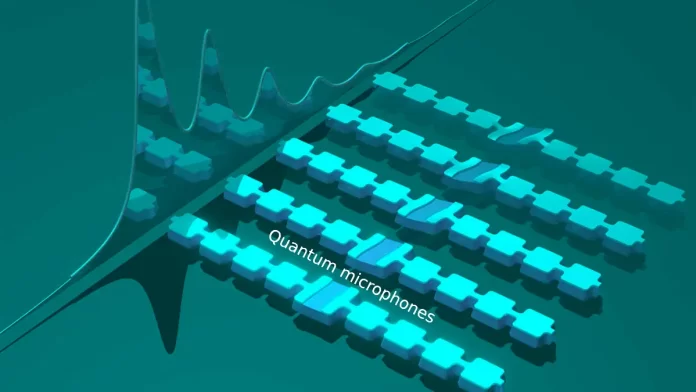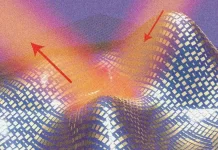
In the ever-evolving landscape of technology, “Quantum Technology” is a revolutionary field that can potentially transform not only the way we approach computing but also our understanding of the fundamental laws governing the universe. In this article, learn what quantum technology is, its key components, and its applications.
Contents
What is Quantum Technology?
To understand quantum technology better first, we have to understand what is quantum mechanics. Quantum mechanics is nothing but A branch of physics that deals with the behavior of matter and energy at the smallest possible scales or nanoscales. Quantum mechanics challenges our classical intuitions and introduces concepts like superposition, entanglement, and wave-particle duality. These principles serve as the foundation for quantum technology.
After understanding quantum mechanics now we can say that “Quantum technology is a rapidly advancing field that harnesses the principles of quantum mechanics and utilizes the unique properties of quantum systems to develop groundbreaking technologies and applications that have the potential to revolutionize various aspects of our lives”.
Some key components of Quantum Technology are:
Quantum Computing
Quantum computers use Quantum Bits (Qubits) instead of classical bits which are either 0 or 1 to perform calculations. Qubits can exist in superpositions, which means they can represent multiple states simultaneously. This property enables quantum computers to process complex information at incredible speeds, making them well-suited for solving problems that were previously computationally infeasible by classical computers.
Applications of Quantum Computing has promising applications in cryptography, drug discovery, optimization problems, and more. It can revolutionize fields like artificial intelligence and financial modeling, addressing problems that were once thought to be impossible.
Quantum Communication
Quantum communication offers a solution to the growing concerns about data security. Quantum technology can be used to create secure communication channels using Quantum Key Distribution (QKD) allows for the transmission of encryption keys using quantum properties, ensuring that data cannot be intercepted or decrypted by eavesdroppers or hackers. The key exchange between parties is theoretically unhackable due to the fundamental principles of quantum mechanics. This technology ensures private and secure communication and also has great promise for protecting sensitive information in an increasingly interconnected world.
The accuracy and precision of navigation systems used in defense applications, such as missiles, drones, and autonomous vehicles, can be greatly increased by using quantum technologies such as atomic clocks and quantum gyroscopes.
Quantum Sensing and Imaging
Quantum technology enables the development of ultra-sensitive sensors that can detect extremely small changes in physical properties, such as magnetic fields or gravitational waves. Quantum imaging techniques provide enhanced precision in capturing images therefore Quantum Sensors have applications in fields like geology, healthcare and medical imaging, environmental monitoring, and astronomy.
Quantum sensing can be used for Nuclear Detection by monitoring adherence to international arms control accords and protecting against the spread of nuclear weapons, quantum sensors can be used to detect nuclear radiation. Know more about Quantum Sensing and Imaging in Warfare.
Quantum Simulation
Quantum technology helps to develop Simulating Quantum Systems, which allows us to simulate the behavior of quantum systems, which is essential for understanding molecular and atomic interactions. This has significant implications in drug development, material science, and even climate modeling.
The Quantum Internet
Quantum Internet is to establishment of a network that will allow data to be sent over entangled particles, enabling safe and rapid global communication. These Entanglement-Based Networks could revolutionize computation and communication worldwide.
Challenges and Limitations
While quantum technology offers immense potential, it is not without its challenges. Some of the challenges and limitations are explained below:
- Error Susceptibility: Quantum systems are incredibly environment-sensitive. Quantum activities can give errors due to interactions with external factors like electromagnetic radiation or temperature variations. Error correction solutions are being researched, however, this is still a major difficulty.
- Decoherence: A phenomenon known as decoherence occurs when quantum states progressively turn classical and lose their coherence. This restricts the amount of time that quantum processes may be carried out, which significantly limits the scalability and usefulness of quantum systems.
- Complexity and Cost: Quantum system construction and maintenance can be difficult and expensive. The technique is unavailable to many organizations and industries because it demands very low temperatures and precise control systems.
- Lack of Standardization: Quantum computing is still developing, in contrast to traditional computing, which has set standards and designs. The inability of hardware and software to be standardized can make it difficult for developers to construct quantum applications.
- Limited Practical Applications: Although quantum technology exhibits potential in multiple domains, it is not a universally applicable answer. Quantum algorithms can effectively tackle some issues, but not all of them. It’s still difficult to determine which uses of quantum technology are best.
- Skilled Workforce: A highly skilled labor force with knowledge of both computer science and quantum physics is needed for quantum technologies. The acceptance and development of quantum technology are hampered by the lack of skilled workers.
- Quantum Security Threats: Although quantum technology has the potential to improve data security, there is also a risk that it could undermine current encryption techniques. The challenge of “post-quantum cryptography” calls for the creation of new cryptographic methods that are resistant to quantum attacks.
- Ethical and Regulatory Challenges: Concerns about ethics and regulations may surface as quantum technology develops, especially when it comes to encryption and secure communication. It can be difficult to strike a balance between national interests, privacy, and security.
- Environmental Impact: Quantum technology’s requirement for extremely low temperatures and energy-intensive cooling systems may affect the environment. It is crucial to think about creating quantum systems that are more energy-efficient.
- Competition and Collaboration: The global quantum technology market is fiercely competitive, with many nations and businesses fighting for the top spot. But cooperation is also necessary to advance the field, and geopolitical factors might make this difficult.
Researchers and organizations are actively addressing the above-explained challenges and limitations in the quantum technology field. As technology matures, it is expected that many of these obstacles will be overcome, paving the way for a more practical and widely applicable quantum technology.
Conclusion
A paradigm shift in how we approach computers, communication, sensing, and problem-solving is represented by quantum technology which is going to play a major role in our lives very soon. It will have an impact on a wide range of industries, including environmental research, banking, and healthcare, in addition to computing and communications. The possibilities are genuinely endless as we continue to solve the riddles of quantum mechanics and create ever-more complex quantum gadgets. It might affect many other businesses, including banking, and defense, therefore applications of quantum technology are anticipated to grow as scientists and engineers delve further into the possibilities of quantum systems, bringing in a new era of creative thinking and scientific advancement.
The upcoming quantum revolution holds the potential to fundamentally alter our understanding of and interactions with the surrounding environment.
Sources
- Singh, Jasprit. Quantum Mechanics: Fundamentals and applications to technology. John Wiley & Sons, 2008.
- Dowling, Jonathan P., and Gerard J. Milburn. “Quantum technology: the second quantum revolution.” Philosophical Transactions of the Royal Society of London. Series A: Mathematical, Physical and Engineering Sciences 361.1809 (2003): 1655-1674.
- Schleich, Wolfgang P., et al. “Quantum technology: from research to application.” Applied Physics B 122 (2016): 1-31.
- Bova, Francesco, Avi Goldfarb, and Roger G. Melko. “Commercial applications of quantum computing.” EPJ quantum technology 8.1 (2021)
FACT CHECK: We strive for accuracy and fairness. But if you see something that doesn’t look right, please Contact us.
DISCLOSURE: This Article may contain affiliate links and Sponsored ads, to know more please read our Privacy Policy.
Stay Updated: Follow our WhatsApp Channel and Telegram Channel.











